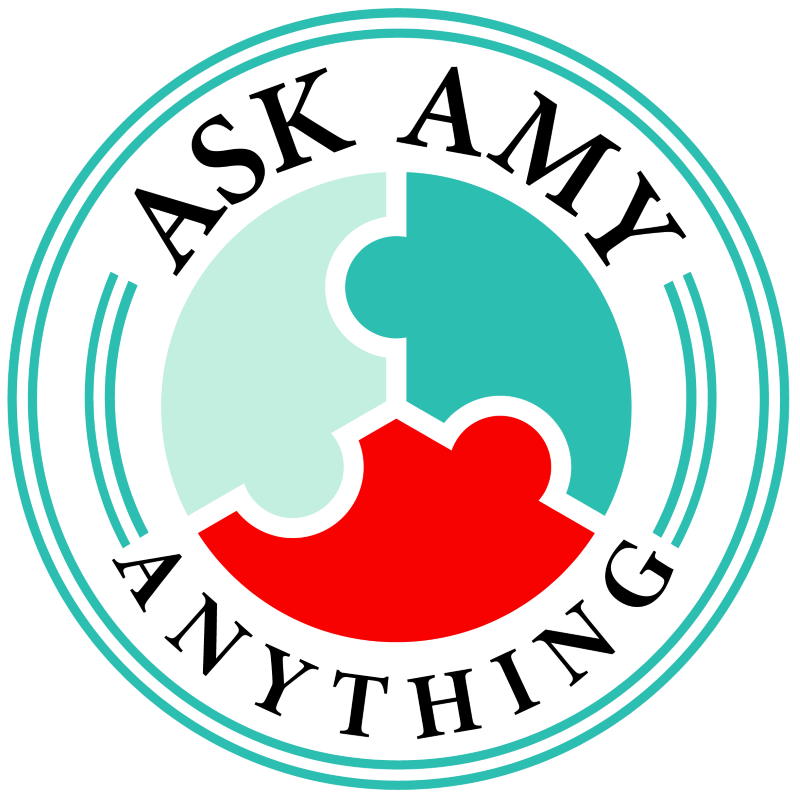When emotions overwhelm us, it can truly feel unsettling. Here’s why it happens and what you can do about it.
What are emotions, anyway?
An emotion is a complex instinctive response that is experienced consciously (even though it may not always be specifically acknowledged by the person experiencing it). Emotions come and go, and can range from mild to extremely intense. According to numerous “experts,” there are eight basic human emotions, which include: joy, trust, sadness, anticipation, anger, fear, surprise, and disgust.
What “normal” emotions look like
As human beings, we are emotional creatures, which means it’s normal for us to experience a range of emotions in varying degrees. Emotions often defy logic or reason, which is not surprising, given they are not born of the same parts of the brain. The intensity of our emotions do not always seem to match what a situation (or expectation, or relationship, or memory, or some other type of stimulus) warrants. For example, a person could feel mildly sad over the loss of a deceased distant relative, but yet that same person could be irrationally and intensely angry over the loss of their car keys.
Many times, we have feelings that don’t seem to have a specific origin or instigator, like when you feel irritated or impatient or disgusted with someone but your logical brain says there is no real reason to feel such a way. At other times, we don’t bother to ask ourselves where the emotion is coming from; rather, we just remain stuck resisting the emotion because our brain cannot rationalize the emotion’s existence. Haven’t you ever had an argument with someone over something stupid, only to later realize that wasn’t what was bothering you in the first place?
Asking questions like “where is this coming from?” and “who or what am I really angry at?” can help diffuse a situation before the argument escalates into a full-on heated exchange. In fact, the next time someone close to you picks a fight, what if, instead of reacting the way you normally react (which might be to fight back, or to shut down, or to walk away), what if you calmly asked them what’s really bothering them? You would be amazed at how this can shift the conversation.
What overwhelming emotions feel like
Sometimes, the intensity of our emotions feels like too much to bear, and we can feel overwhelmed. This may or may not be directly related to whatever prompted the emotional response. Grief can be an all-consuming emotion at times, but in some cases, the reason for intense emotions isn’t nearly as understandable. If you’ve ever seen someone just lose her mind at a clerk in a store or toward a server in a restaurant, you understand this concept of disproportionate response. But let’s not confuse overwhelming emotions with bad behavior; the demonstration may appear the same, but the underlying motivation is different.
 Although, it is possible that the person who acts out to gain attention, or get their demands met, or feel superior over others, could be acting from a place of intense and unresolved emotions. But perhaps that is a different discussion we can explore on a different day.
Although, it is possible that the person who acts out to gain attention, or get their demands met, or feel superior over others, could be acting from a place of intense and unresolved emotions. But perhaps that is a different discussion we can explore on a different day.
After one of my children was born, my connected to her was so strong that whenever I looked at her, I felt so much love that I felt my heart would nearly burst. When my children were little, whenever one of them was sick or in pain, I would often feel overcome with stress and anxiety. In fact, my emotions at these times would be so overruling that I would find myself unable to use my intuition to discern what they needed in order to heal, and in these instances I would have to consult another intuitive to get an accurate reading.
When you hear stories about road rage causing a person to smash into another car or drive head-on into a building, what do they often say after the incident? “I just don’t know what came over me.”
You may have had the experience of feeling overwhelmed with inexplicable sadness, or despair, or fear, or joy, or some other type of emotion, whether positive or negative in nature.
I can recall two separate times in my life when I cried myself to sleep for more than a week at a stretch. The first was during a time when I felt so incredibly grateful that before falling asleep, I would mentally list all of the people and blessings and things in my life that I was grateful for, and I would become so overwhelmed with gratitude that tears would stream down my face until I fell asleep. The second was during a time when I was so confronted with the dark truths of the world and the horrific realities of what happens in underground places where evil runs rampant, that when I got into bed at night, I would silently weep for an hour or more before finally falling asleep. Even now, when I think of the demonic ways that innocence is stripped of sweet children and babies, my eyes well with tears.
Why we get overwhelmed with emotion
Why does this overwhelm happen? Sometimes in the midst of it, we ask ourselves, “What is wrong with me?” Or we offer a disclaimer to anyone we break down in front of, “I’m sorry, I don’t know why I’m crying.” Here are a few reasons why this can happen (in no particular order):
1. Being in the midst of an overwhelming situation or relationship.
Abuse, divorce, death, cancer, moving, medical problems or car accidents, betrayal, trauma, natural disasters, loss of a job, IRS tax audit, a home, a friendship, a pet, or anyone/anything that carries meaning to us—even just the state of the world today—these are all heavy situations and life experiences that hurt to go through. Emotions are understandably going to feel huge and intense in the midst of such stress and disruption.
2. Addiction or mental health disorders.
Addictive behaviors and patterns, and mental health due to chemical imbalances (like bipolar disorder, narcissism, manic depression, multiple personality, etc.) often create high highs and low lows, resulting in intense emotional responses.
3. External locus of satisfaction.
Just FYI, “locus of satisfaction” is a term I totally made up. You may have heard the expression “locus of control,” which refers to the individual perception of how much control you possess over your life and what happens to you. A person with an internal locus of control is one who takes responsibility for the good and the bad in their life, because they believe they are largely responsible for what happens to them, and how their life flows. A person with an external locus of control is one who tends to blame others for their lot in life, because they believe they possess little control over what happens to them.
When I use the phrase “locus of satisfaction” I use this to mean whether a person derives satisfaction in life from internal factors, or from external factors. People with an external locus of satisfaction are often looking for external validation and input on their accomplishments. Awards, accolades, compliments, and recognition are very important to their level of satisfaction in life, and a big part of how they measure success. These are people who want to show you their accomplishments and then gauge your reaction, which they then consciously or subconsciously use to measure their value and worth. In contrast, those with an internal locus of satisfaction can only feel validated if they themselves feel they have done well, regardless of what anyone else says. They may graciously receive awards, accolades, recognition and compliments, but those things do not change how they themselves feel about their creation or result. If you’ve ever complimented someone on something they did and their response was, “I know,” they likely have an internal locus of satisfaction. By the same token, that same person, if dissatisfied with what they’ve produced, cannot agree with you no matter how enthusiastically or persistently you praise their work.
 I have an internal locus of satisfaction. If I’ve done something, or created something, or lead something, I have an internal cause of whether or not it measured up to my own standard. If it didn’t, there’s nothing you can say to convince me otherwise, I will remain dissatisfied with the outcome. (Doesn’t mean I obsess over it, btw, just means I’’m not satisfied with it and I never will be unless I keep working to improve it to meet my own standard.) Likewise, if I am satisfied with something I’ve done or created or lead, you can criticize it all you want and it will not diminish my satisfaction one bit, because it meets my internal standard. Can you see how this makes me less subject to the opinions and attitudes of others? It doesn’t mean I’m incapable of getting my feelings hurt, it just means I have an internal compass that guides much of my emotions when it comes to my own productivity.
I have an internal locus of satisfaction. If I’ve done something, or created something, or lead something, I have an internal cause of whether or not it measured up to my own standard. If it didn’t, there’s nothing you can say to convince me otherwise, I will remain dissatisfied with the outcome. (Doesn’t mean I obsess over it, btw, just means I’’m not satisfied with it and I never will be unless I keep working to improve it to meet my own standard.) Likewise, if I am satisfied with something I’ve done or created or lead, you can criticize it all you want and it will not diminish my satisfaction one bit, because it meets my internal standard. Can you see how this makes me less subject to the opinions and attitudes of others? It doesn’t mean I’m incapable of getting my feelings hurt, it just means I have an internal compass that guides much of my emotions when it comes to my own productivity.
Whereas, for someone with an external locus of satisfaction, every thing they produce is subject to the opinions and attitudes of others. Now imagine that this same person is a creative type who puts their work on display via social media, where total strangers, bots, trolls, and their exes are all free to comment and opine about this person’s creative work. Oh yeah, you can bet there are going to be some intense emotional reactions going on! It’s likely to be a roller coaster of emotional intensity.
Admittedly, there may be a psychological term that exists for this concept which I’m calling “locus of satisfaction,” but I’m not a psychologist so that’s why I made up my own phrase. And now you understand that I don’t need you or anyone else to like it, because I’m satisfied with the phrase, and that’s sufficient for me, as a person with an internal locus of satisfaction. 😉
4. When the system is taxed.
Everything is more fragile and more volatile when our energy is low, our resistance and immunity are down, we’re tired, overworked, stressed out, lack adequate support, and/or have too much on our plate. If you’re getting sick (or just getting over being sick), are under super high stress, or you’re not sleeping or you’re in pain; whenever your system is taxed and maxed, the slightest thing can set you off or cause a chain reaction. Emotions can run high and intense when your battery isn’t getting charged and you’re not taking care of yourself. Same goes for when normal emotions don’t have an outlet or get suppressed. Eventually, the pressure cooker explodes and it all rains down.
5. Unresolved issues.
Everybody’s got some kind of trigger, don’t they? It could be a certain person who sets you off, or maybe your trigger is related to trust, betrayal/loyalty, feeling bossed around or criticized or micromanaged or nitpicked, or maybe someone says something and it takes you back to your childhood and your hypercritical mother and the emotion meter goes from zero to sixty in a nanosecond. One of my favorite lines from the old sitcom “Frasier” is when Frasier’s brother Niles loses it and shouts at him: “don’t you DARE call me irrational, you KNOW that makes me CRAZY!!” While that is a funny line, when it happens to you in real life it’s no joke. These triggers are usually related to some kind of unresolved issue. Once resolved, the trigger dissolves along with the issue. (HINT: this is what I do when I “clear” for people. Go ahead and book a mojo if there’s a pesky trigger or two you want me to resolve for you.)
Tips for managing overwhelming emotions
OK so the point is clear that from time to time, emotions can feel overwhelming. What can we do when this happens?
For starters, it may be helpful to remember that we were built to feel; but feelings do not rule us. Feelings are fleeting; in other words, this too shall pass. But in the meantime, here are a few tips for handing intense emotions:
- Ground your energy. I could talk about this one all day, but I don’t have to because I already wrote a book filled with tips for grounding (Lightworkers’ Guide to Grounding Energy). If you prefer to watch rather than read, check out my grounding videos from back in 2016 on my YouTube channel.
- What’s your favorite element? There’s no “right” answer to this, but whatever your answer is, you can use that to help you diffuse some of these intense emotions. Start by writing down everything you’re feeling. Be honest and thorough, no one else needs to see this. Do you feel connected to the element of fire? Burn your written statement (safely, in a contained fashion please). Is it water? Tear it up and flush it down the toilet. Is it earth? Bury the paper in the backyard. Many times, these strong emotions have no real outlet, so they pile up inside. Writing is a way to safely purge, and opens the valve on the emotional pressure cooker.

- Talk to a trusted friend. Sometimes it’s helpful to start with “I don’t need you to say or do anything, I just need you to listen so I can get this all out.” This sets the other person at ease from the get-go, and keeps them from listening with their problem-solving hat on. Now there’s no pressure on them to do anything at all, they can just be present and listen for you.
- Try to allow the emotion to flow through you. Often these intense emotions scare us, so we resist this option. Our tendency is to try to tamp it down or try to postpone letting it out because of beliefs like “I can’t deal with this right now” or “I don’t have time for this” or “I can’t let the kids see me fall apart.” But emotions are not rational, and they don’t typically respond to rational thought. All those statements may be true—maybe you really can’t or don’t have the time to deal with this, or you don’t want to alarm your children—but it’s got to find an outlet because otherwise it’s a powder keg waiting to explode. Sometimes the only way out is the way through. Instead of judging what you’re feeling, try just allowing that feeling to flow through you and out (safely… for example, not while in your boss’ office during your annual review, and not while driving or operating heavy machinery!) This alleviates a lot of pressure and build up and quickly mitigates the intensity of the emotions.
- Use an energy healing technique like EFT (Emotional Freedom Technique) or seek assistance from an experienced energy healer.
Got other ideas? What’s worked for you in the past? Drop me a line and let me know and if we get some good ones I’ll update this post with your suggestions.
In the meantime, breathe, ground, and know that no matter how intense they seem, feelings are fleeting and this too shall pass.
And hey, if you feel I can help, email me or book a Mojo session.







